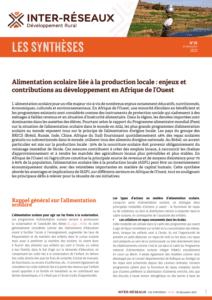The Transformation Agenda (TA) clearly makes agriculture one of the key sectors and drivers of the economy that is to achieve socio-economic transformation of the country. The role of agriculture in transforming Nigeria is particularly significant because the sector contributes most to Nigeria’s GDP (about 40%); employs about 66% of the labour force; provides 80% of food consumed in Nigeria; and provides at least 50% of industrial raw materials needed in the country. But notwithstanding the demonstrated contribution and potentials of this sector, governments over the years have relegated it to secondary levels behind other less sustainably impacting sectors like oil and gas. With the TA of the present administration, agriculture comes to limelight as a potential vehicle for creating employment and improving the GDP growth rate of the country from 7.2% in 2011 to the desired 11.8% in 2015.
On the other hand, the budget is the second most important legal document of the nation after the constitution, and this is because it is a tool for allocating scarce resources of the country to sectors of the economy on an annual basis. In so doing it demonstrates government’s commitment and prioritisation among sectors, programmes and projects through the share of the budget that each gets. The sectors’ allocations usually reflect government policy and programmes as detailed in policy documents adopted by the administration at the time. The present government has adopted Transformation Agenda 2011-2015 as the blueprint for the nation’s socio-economic development with specific areas of focus including targets and strategies for realising them.







